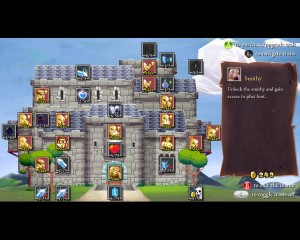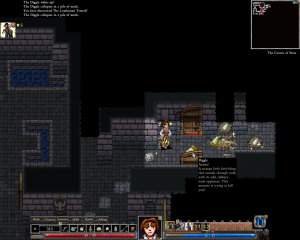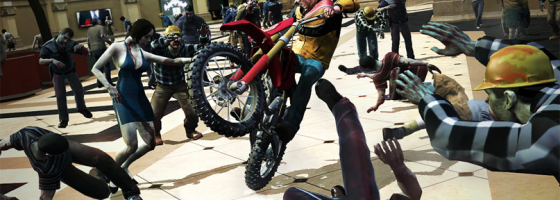Failure is a tricky concept in game design: Too little and the game loses its challenge. Too much and the player becomes discouraged and doesn’t want to continue. Harder titles or those that make use of rogue-like mechanics like to implement failure in such a way that it stacks the deck against the player. However while it may sound like motivating on the surface, it opens up a different can of worms for the designer to deal with.
Failure Fundamentals:
For this post I’m going to reference an earlier post I wrote about the types of failure in game design and expand on that with a sort of middle ground between controllable and uncontrollable failure.
One of the common elements of any rogue-like style game is the fact that the player is going to fail a lot. Part of it is the learning curve of how elements work while another is the player just simply having bad luck with the world generation or design.
However, forced failure is something that we see tied into Meta game progression and can be defined as the following:
Forced Failure: Gameplay that was balanced to force the player to lose through no fault of their own.
Now, you may be thinking right now,” Aren’t roguelikes all about forcing the player to lose?”
And you’re right, going back to my linked piece; roguelikes feature both controllable and uncontrollable failure. But, games with forced failure are designed to “stack the deck” in such a way that the game is either impossible or next to impossible for the player to win through no fault of their own.
The supposed hook for this kind of design has to do with the Meta-game and how with each failure, the player is making Meta-game progress that will be carried over to subsequent plays. So in reality the player is making progress with each play.
In actuality, there are only a few games that come to mind that feature forced failure design: Dead Rising, Rogue Legacy and Breath of Fire Dragon Quarter. The commonality between the three series is how perception is polarized between people who loved these games and those that couldn’t stand it.
And the reason has to do with how the concept of failure is perceived when the designers not only expect you to lose, but encourage it.
Taking Your Lumps:
Forced failure design as mentioned has only appeared in a few games and each one has very polarizing opinions about its quality.
Let’s briefly talk about Dead Rising as it is probably the game that everyone is the most familiar with of the three. Dead Rising was about surviving three days (in game time) trapped in a mall with zombies and people who have gone crazy. At specific points during each day, cases would pop up leading the player to either survivors that needed rescuing or psychos that could be fought.
When you first started playing, main character Frank West moved slowly, could only carry a few items, had little health and no survival moves whatsoever. By completing cases, killing psychos and zombies and rescuing people the player would earn experience.
With enough experience the player would level up and in return receive a random improvement, with the game designed to unlock all improvements when they reached the level cap. If the player ran out of health or reached day 3 without completing all the main cases, the game would end in failure.

Rogue Legacy’s meta game progression forces the player to start off very weak to eventually build up to have any chance at survival.
After which, the player could restart from day 1 and do it all again, while keeping their current level and upgrades. Looking at this kind of design I have a few problems with it.
First is that you’re forced to repeat a set situation every time (AKA Groundhog Day) just with a stronger character. The design was set up this way to show you how much you’ve improved where before you couldn’t save someone or fight a boss on day 2, but now you’re blazing through it.
The problem with a set design is that it makes the early gameplay become busy work as you go through the motions of what you’ve accomplished already to get to the new stuff.
Replayability is another issue, as designers think that they’re making their games more replayable with this system when they are actually doing the opposite.
The general concept is that the player is going to keep playing as they’ll eventually get powerful enough to beat the game. But all the design is doing is stretching out a linear gamespace into multiple chunks of play.
What ends up happening is that the set gamespace and power progression will reach a point where the player has no desire to repeat things for the nth time and stops playing.
Contrast with a rogue-like where everything is randomized and it keeps the experience fresh as the player has no idea what each play will bring.
But the biggest problem and one that I talked about in my analysis of Rogue Legacy, is that when you game concept is forcing the player to repeat the same content but getting gradually stronger, it upsets the flow of progression.
What happens is that you no longer care about your current play or run, but instead you’re only focusing on a future run where you’ll have enough upgrades to beat the game.
There is a big difference in flow between a game like Dead Rising or Rogue Legacy that forces the player to “pay their dues” and a roguelike like FTL or Dungeons of Dredmor where anything can happen and there is no specific time when the player will have a winning run.

While in a rogue like, success or failure has no set conditions and every play could end very differently from one another.
While the latter may be harder, it is more rewarding and exciting to have that unpredictability compared to the former, where the designers force you to use the meta-game enough to eventually win.
If the games mentioned had more random elements to it so that each play through wasn’t essentially the same basic framework. that would do a lot to ease the grinding effect that is in place.
What it comes down to is that players are more accepting of failure when it is on their terms: They missed a jump, didn’t aim properly etc. But when the game is designed against them, most people aren’t fans of the boot camp expression — “thank you sir, may I have another?”


